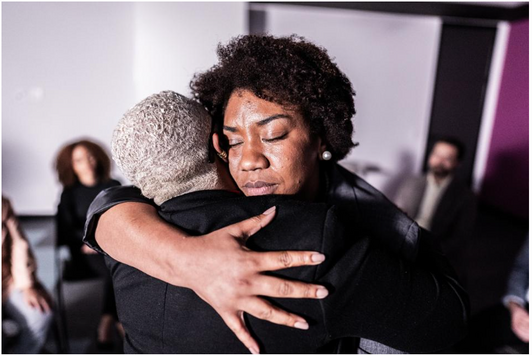Alerts

Employee support during tragedy goes beyond sympathy—it’s about creating an environment where people feel seen, safe, and understood. In a world facing ongoing conflicts, natural disasters, and humanitarian crises, employees often show up to work carrying invisible burdens. Leaders who acknowledge this reality build stronger, more loyal teams. Supporting employees in times of tragedy shows empathy in action and helps sustain both mental health and productivity.
When tragedy strikes—whether it’s war, displacement, or disaster—acknowledgement is the first step toward healing. As Sudanese cardiologist Dr. Mazin Omer Khalid shared, recognition of suffering validates employees’ experiences. Leaders should educate themselves and their teams on global events affecting colleagues. Sharing credible information and advocating for awareness—such as understanding the humanitarian crisis in Sudan—fosters a sense of solidarity that extends beyond the workplace.
Real support is empathy in motion. That means checking in with affected coworkers, offering flexibility with deadlines, and making room for rest or reduced workloads. Dr. Samantha-Rae, a Jamaican executive, reminds us that supporting employees during tragedies like Hurricane Melissa includes practical help—donations, flexible work arrangements, and space for emotional recovery. Empathy should be reflected in policies, not just words.
As Omama Y. Marzuq, a Palestinian American professional, explained, open dialogue allows employees to process trauma safely. Instead of focusing on performance dips, managers should ask, “How can I support you today?” Encouraging conversation humanizes the workplace and strengthens psychological safety. By combining empathy, education, and genuine communication, leaders can build trust even in the most challenging times.
𝗦𝗲𝗺𝗮𝘀𝗼𝗰𝗶𝗮𝗹 𝗶𝘀 𝘄𝗵𝗲𝗿𝗲 𝗿𝗲𝗮𝗹 𝗽𝗲𝗼𝗽𝗹𝗲 𝗰𝗼𝗻𝗻𝗲𝗰𝘁, 𝗴𝗿𝗼𝘄, 𝗮𝗻𝗱 𝗯𝗲𝗹𝗼𝗻𝗴. We’re more than just a social platform — from jobs and blogs to events and daily chats, we bring people and ideas together in one simple, meaningful space.